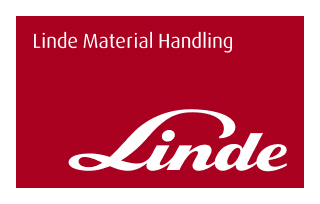Regular forklift repair and maintenance are vital to workplace safety and efficiency. Ensuring your equipment is well-maintained can significantly reduce costly downtime and extend its service life. In fact, forklift truck repairs are not merely about fixing faults; they're a strategic investment in uptime and productivity right from the first use.
Why Regular Forklift Maintenance Matters
Proactive maintenance helps reduce unexpected downtime, avoid expensive breakdowns, and meet safety and regulatory standards. It safeguards both people and goods.
Different forklift types, electric, LPG, and diesel, require subtly different maintenance approaches:
-
Electric: Focus on battery health, wiring and controller diagnostics.
-
LPG/Diesel: Emphasis on engine, fuel lines, filters, and combustion systems.
Common Forklift Problems and Their Causes
Here are some frequent issues:
-
Engine won’t start: Often due to flat batteries, fuel system problems, or ignition faults. Early signs include sluggish cranking or warning dashboard lights.
-
Hydraulic lift issues: Caused by low fluid, hose wear, or pump failure. Watch for slow lift, jerky movement, or unusual noises.
-
Steering or brake failure: Might stem from worn pads, hydraulic leak, or misalignment. A spongy pedal or stiff steering wheel are red flags.
-
Battery problems (for electric forklifts): Can include poor charge retention, terminal corrosion or low water levels. Spot early signs like reduced run time or slow charging.
-
Fluid leaks: Often from seals or hoses. Visible puddles, unusual fluid levels, or overheating are early indicators.
-
Warning lights or error codes: Sensors, wiring or controllers may be failing. Lights or codes point to emerging faults, even if the machine still appears operational.
DIY Fixes vs Professional Forklift Truck Repairs
What You Can Safely Handle In-House:
-
Checking and topping up fluid levels
-
Cleaning or replacing air and fuel filters
-
Removing corrosion from battery terminals
-
Basic visual and walk-around inspections
When to Call a Certified Technician:
-
Persistent engine or hydraulic faults
-
Complex electronic or controller errors
-
Brake or steering system malfunctions
-
Any issue posing safety risks or impeding operation
Risks of Delaying Repairs:
-
Escalating damage and costs
-
Increased safety hazards
-
More extensive downtime and disruption
Basic Troubleshooting Tips for Staff:
-
Tap the accelerator twice before starting
-
Test brake response before loading
-
Log and report any warning lights, strange sounds or leaks immediately
Electric Forklift Repair: What You Need to Know
Electric forklifts present unique electric forklift repair considerations:
-
Common issues: Battery degradation, wiring faults, controller errors
-
Specialist skills needed: Technicians trained in high-voltage systems and safe battery handling
-
Battery care tips:
- Maintain water levels as per manufacturer
- Clean terminals to avoid corrosion and resistance
- Charge regularly, avoid deep discharges
Safe handling, especially around high-voltage systems, is non-negotiable.
How to Prevent Forklift Breakdowns
Avoid major repairs with a structured preventive programme:
-
Daily pre-use inspections: Check tyres, lights, brakes, fluid levels, steering and safety devices
-
Weekly/monthly routines:
-
Battery health (for electric): water level, charging, terminal condition
-
Tyre condition and pressure
-
Mast, chains and lubrication
-
Maintenance log: Record every check, repair and observation
-
Schedule professional inspections: Quarterly or annually to catch deeper issues earlier
When to Replace Parts vs Repairing Them
Common components often nearing end-of-life:
| Component |
Replace When... |
Repair When... |
| Tyres |
Cracked, worn tread, or punctured |
Minor wear, still within thickness |
| Forks |
Bent or cracked |
Slight misalignment or paint chipping |
| Chains |
Stretched beyond spec or rusted |
Light rust, minor tension adjustment |
| Brakes |
Hard to stop, worn pads |
Slight wear, still responsive |
| Batteries |
Fails to hold charge |
Minor terminal corrosion or low water |
Choosing a Reliable Forklift Repair Service in Australia
When selecting a provider for forklift truck repairs, consider:
-
Their certifications: ISO, OEM training, WorkSafe compliance.
- Their response times: Especially critical during downtime.
-
If they use genuine parts access: Ensures reliability and compatibility.
At Linde MH, you benefit from technicians with industry-accredited training, fast service response, and access to genuine parts, positioned subtly to support your maintenance needs without overt self-promotion.
Proactive Maintenance will Save You in the Long-Term
Understanding the nuances of forklift repair and maintenance, knowing when it’s safe to perform DIY checks versus when to seek expert help, ensures your fleet remains safe, efficient and reliable. By staying proactive, keeping maintenance logs, and partnering with trusted professionals, you’ll protect both your workplace and your bottom line.
Want a preview of our forklift services? Check them out at the link below.
OUR FORKLIFT SERVICES

